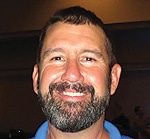In 2024, SMART Local 9 worked tirelessly to push an indoor air quality in public schools bill through the Colorado state legislature and to Governor Jared Polis’s desk — only to see the governor veto the legislation, along with the work hours it would have created for SMART members.
The local could have accepted defeat. But Business Manager Jon Alvino and Political Director/Organizer Chaz Tedesco knew that HVAC work in public schools represented a golden opportunity for Colorado sheet metal workers, not to mention benefiting kids and educators — especially important at a time when continued federal funding for indoor air quality work is being threatened by Congress.

Their resolve paid off in June 2025, when Gov. Polis signed a new version of the bill that requires school districts to thoroughly assess and upgrade their HVAC systems using certified contractors when spending federal infrastructure or education funds, and to provide for regular maintenance and inspection of HVAC systems following installation.
“After the governor’s veto of last year’s bill, I had serious reservations about running something similar again,” Alvino said. “But I owe a great deal of thanks to Representatives Sheila Lieder, Eliza Hamrick and Senator Jessie Danielson. Their leadership, encouragement and unwavering support gave this bill and our union the momentum we needed.”
“Representative Lieder has been an incredible champion — not just for this bill, but for sheet metal workers across Colorado,” he added. “Her advocacy, rooted in her experience as a labor leader with CWA, continues to make a real impact.”
The bill directs the governor to use remaining Bipartisan Infrastructure Law funds to assist school districts in finding certified contractors and writing grants to access federal funding, and instructs the state Department of Labor and Employment to create a list of certified HVAC contractors schools can hire from.
“There are many qualified HVAC contractors across Colorado, and this legislation ensures that when schools update their heating and cooling systems, they meet high standards for safety, efficiency and quality,” said Colorado State Rep. Lieder in a post-session statement. “This law is good for workers and small businesses because it helps them secure HVAC maintenance contracts while creating safer air to breathe for Colorado students and educators.”
Whether it’s indoor air quality, offsite fabrication or other sheet metal work, SMART members and high-road signatory contractors miss out on jobs when bad-faith employers take advantage of loopholes to win bids on work such as HVAC in public schools. For that reason, Alvino explained, the enshrining of SMART HVAC standards into state law is a big win for members.
“The certified contractor list created through this bill guarantees that those who pay prevailing wages and participate in registered apprenticeship programs are eligible. It’s a huge step forward for ensuring quality work and supporting skilled local labor,” Alvino explained.
Plus, when combined with local bond measures, the legislation puts Local 9 in a strong position to partner with school districts, helping them leverage matching funds at both the state and federal level to improve their facilities.
“This legislation wouldn’t have been possible without the dedication of our members, the courage of our state leaders and the tireless advocacy from labor and community partners,” Alvino concluded. “Thanks to their efforts, students and educators across Colorado will benefit from cleaner, healthier air, and workers will have more access to good-paying, meaningful jobs that make a real impact.”
